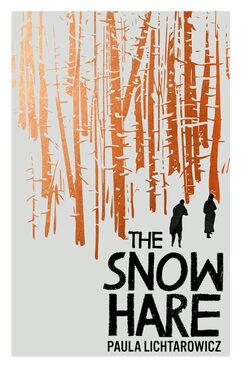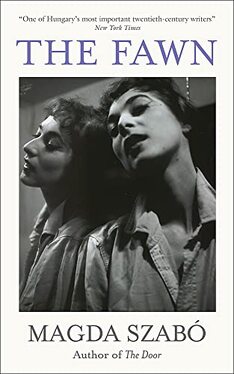The Snow Hare by Paula Lichtarowicz
It seems like hell and yet there’s a surprising consolation. But love brings difficult choices and Lena will be haunted by her decision for the rest of her life.
Inspired by the experiences of the author’s grandmother, this is a lovely historical novel about endurance, the lasting legacy of trauma and how our lives don’t go completely to plan. Thanks to publishers John Murray Press for my review copy.
You can meet another young woman of Lena’s generation with similar dreams of becoming a doctor who also had an unwanted child in my novel, Matilda Windsor Is Coming Home.
The Fawn by Magda Szabó translated by Len Rix
For reasons that weren’t completely clear to me, except in the human tendency to find scapegoats for our dissatisfactions, Angéla, an attractive and wealthy schoolmate, becomes the focus of Eszter’s resentment. Instead of dissipating over time, her jealousy hardens into hatred as, in adulthood, their lives become embroiled through their involvement in the same man.
In principle, it’s great to come across a narrator who doesn’t care if we don’t like her, but it meant I didn’t relish spending time in her company. The literary style didn’t help with a stream of consciousness addressed to her absent lover in the present slipping into reminiscences often at indeterminate points in time.
The blurb tells me the novel “embraces the lies and falsehoods people were obliged to live with” in 1950s Hungary, but we’re shown this more in the shadow than the light. For example, because she came from an aristocratic background, the communists have forced Eszter to present a false version of herself as having rejected the privilege she never had. And, of course, as an actress, she is continually playing different roles.
I wish I’d liked this more. It probably says more about me than about the writing that I much preferred the author’s previous translation, Abigail, which is actually for young adults. Thanks to MacLehose Press for my review copy.
| This week’s flash fiction challenge is for 99-word story that’s a love letter to nature. With the first of these novels in mind, I thought I’d write about the mountain hare who changes his coat between summer and winter to be camouflaged against the snow. I found it a struggle to write, partly because I’m stuck indoors with Covid when it’s perfect weather for hare spotting out on the moors. Sadly I don’t even have the strength to cross the road to the fields where I might spot a fawn. But at least I can look out at my garden coming to life. |
He couldn’t promise me a day, an hour or even that he did show at all. He wouldn’t commit to candles or fancy tableware. He didn’t go for gourmet food. He was vague about the venue too; I’d have to tramp across the heather, peer across the moorland for a flash of white. I’d take my chance: Valentine’s was the best time to find him, when the air smelt of spring but the calendar said winter and he still wore his snowy furs. But my heart would leap to spot him bounding towards me. Lepus timidus, my mountain hare.
























 RSS Feed
RSS Feed





















